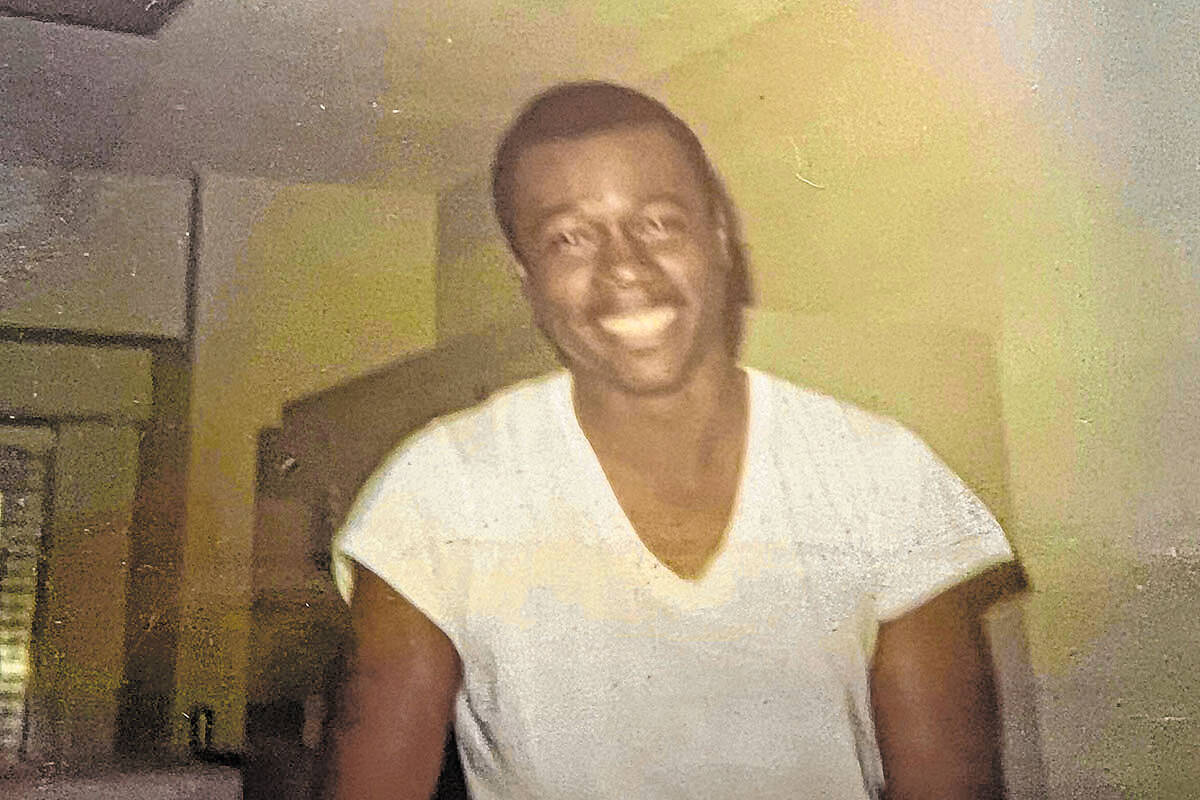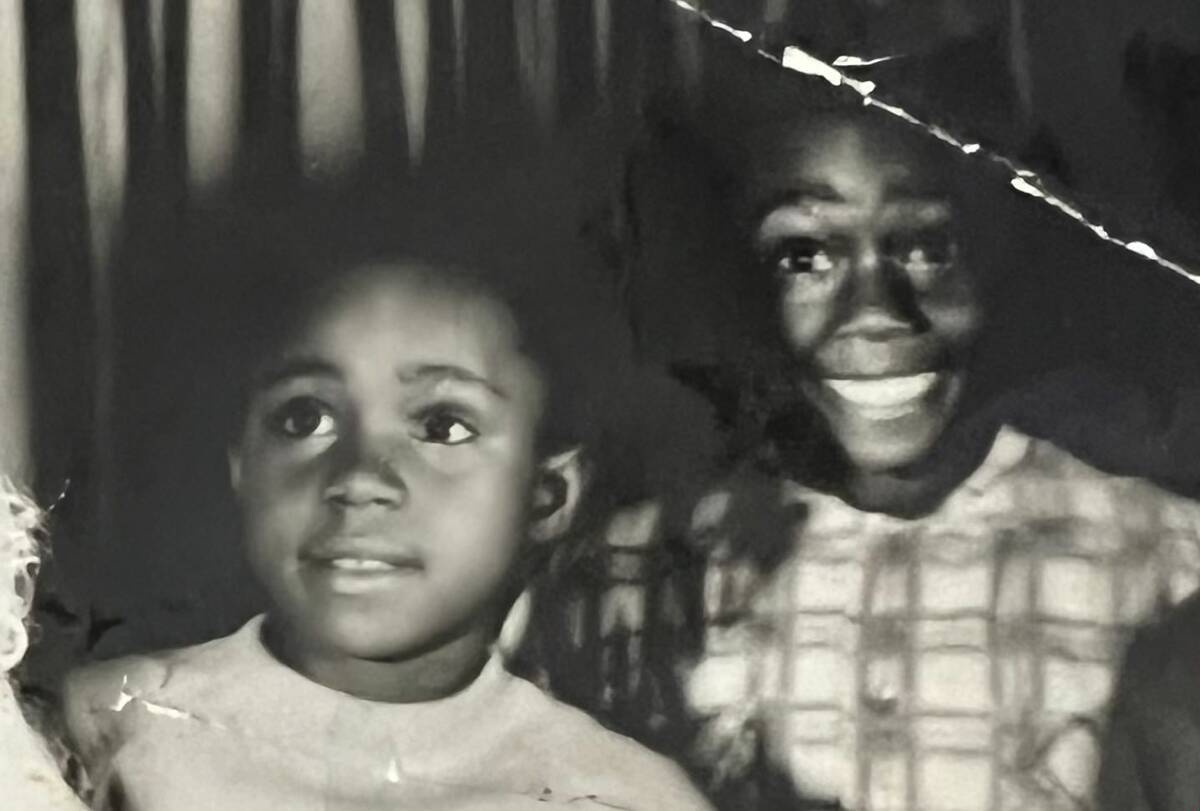Lawsuit: Inmate killed by cellmate made multiple requests to move cells
An inmate at a prison near Las Vegas who was bludgeoned to death by his cellmate had made multiple requests to transfer out of his cell because of safety concerns, a lawsuit brought by his family alleges.
Prison staffers and the Nevada Department of Corrections denied these requests, said the lawsuit, which was filed Sept. 29.
Mitchell Harris, 70, died on Sept. 28, 2022, from blunt force injuries to the head and neck, according to the Clark County coroner’s office, which ruled his death a homicide.
His family had always hoped that Harris would one day come home, said Rose Hughes, 71, Harris’ sister, who lives in Chicago, where Harris grew up. “He did come home,” she said. “He’s in a vase now, sitting on my china cabinet.”
Prosecutors say Harris was killed by his cellmate, Darius Sorrells, for whom an arrest warrant was filed by the Nevada attorney general’s office nearly 11 months after Harris’ death.
Sorrells, charged with murder, was found incompetent to face the charge on Sept. 6. Court records show that a judge granted the state of Nevada’s motion to involuntarily medicate him on Sept. 11 so that he could stand trial.
Harris was serving a life sentence at High Desert State Prison after he was found guilty of murder, having stabbed his ex-wife Nancy Harris with an ice pick at a gas station at Sahara and Eastern avenues in 1989.
The Review-Journal previously reported that prosecutors argued Harris had beaten his ex-wife before because of money disputes. In the months before the killing, the Review-Journal also previously reported, Harris was charged with domestic battery and kidnapping the woman.
“I can’t say that it was right what he did, but what happened to him wasn’t right either,” Hughes said. “He spent many years paying for that crime, but he did not deserve to die the way he did.”
A Nevada Department of Corrections spokesperson said the department couldn’t comment on active litigation.
Visiting her grandfather in prison
Aura Harris, 35, who also lives in Chicago, said that her grandfather had been incarcerated as long as she has been alive.
Despite not being able to grow up experiencing “a lot of the things that you would typically experience with your grandpa,” Aura Harris said she loved visiting him in prison.
She recalled a Looney Tunes mural painted on the wall at Ely State Prison, where Mitchell Harris had been housed before High Desert. Aura Harris said she would bring quarters for the vending machine and play board games with her grandpa.
Their favorite game was Scrabble, Aura Harris said. “He actually beat me with the word ‘qat,’” she said. “I was so upset.”
For years, Aura Harris would debate her grandpa about the word being real or not. It wasn’t until after his death that she looked it up. It means “the leaves of an Arabian shrub,” according to the Oxford Languages definition in Google’s online English dictionary.
“I know why my grandfather was in prison,” Aura Harris said. But growing up, she said she didn’t see him as an inmate. “That was just grandpa,” she said.
“I really felt like I had all the time in the world to get to know grandpa better,” she said. One day, she said she hoped to talk to him about what happened and get some closure.
But when he was killed, Aura Harris said she felt a lot of guilt. “You don’t have all the time in the world,” she said.
‘Brutally lost his life in a prison cell’
While incarcerated in the same cell as Sorrells, who had killed his mother and sister in 2014, dismembering at least one of their bodies with a chain saw, Mitchell Harris had made several requests to move, the lawsuit said.
Sorrells was on antipsychotic medications while incarcerated, records show, but the lawsuit alleges that Sorrells was permitted to refuse the medication.
Despite this, the lawsuit says Mitchell Harris was told that the department would not allow “convenience bed moves” after sharing his concerns with prison staffers.
The lawsuit also alleges that a corrections officer said, “Hey, chill out. Stop that,” to Sorrells before walking away from the cell as Sorrells attacked Mitchell Harris, the lawsuit alleges.
While department spokesperson Teri Vance declined to comment on the lawsuit, Vance said that offenders are housed according to their custody level, taking into account certain factors including medical ones.
“There is not an official ‘cell policy,’ as housing is determined by several factors,” Vance said. “If an offender were to be in fear of another offender in his cell or otherwise, that offender can report to an officer or caseworker to be considered for protective housing.”
Nathan Lawrence, lead attorney for the plaintiffs in the lawsuit, said in a statement, “as a direct result of the NDOC’s policies and indifference, the 70-year-old Mr. Harris brutally lost his life in a prison cell.”
‘We’re looking for systemic relief’
Aura Harris said that while she feels that the Nevada Department of Corrections let her grandfather down, it also let Darius Sorrells down. “I also feel empathy for him,” she said. “I believe that he really was not in his right mind.”
For Aura Harris and Hughes, what happened to Mitchell Harris is part of a broader picture.
“We’re looking for systemic relief,” Aura Harris said.
There have been other homicides inside Nevada’s prisons since Mitchell Harris’ death. In July, three inmates were killed in a fight that broke out at Ely State Prison. Another inmate at the prison was stabbed to death in April.
Aura Harris, who is a plaintiff on the lawsuit alongside Mitchell Harris’ mother, 89-year-old Georgia Pertiller, said that getting to the point of filing the complaint was difficult, in part because of a lack of information. “I’m a pretty stubborn person, and I was ready to give up,” she said.
She worries about other families that may lack the resources, knowledge or stamina to file similar complaints. “How many families are out there that can’t come forward?” Aura Harris asked.
“Sadly, statements regarding ‘seeking justice’ began to sound trite and repetitive when there is an almost chronic pattern of unnecessary inmate deaths in Nevada, but, for the individual family members of every newly deceased inmate, the hope of justice is all that’s left to them,” Lawrence said in a statement.
Moving forward, Mitchell Harris’ loved ones want to see a system-wide change at the Nevada Department of Corrections.
For now, they are left celebrating holidays with his ashes. The vase that holds them is decorated with twinkling lights at Christmas, Hughes said. “He taught me to find the humor in everything.”
Contact Estelle Atkinson at eatkinson@reviewjournal.com. Follow @estellelilym on X and @estelleatkinsonreports on Instagram.























